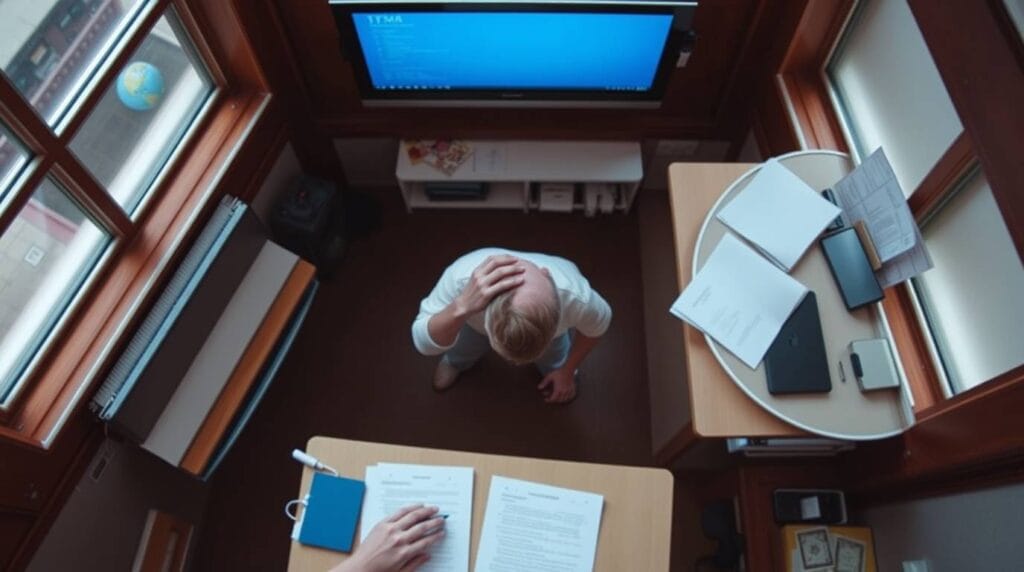Let’s face it—not all tasks are exciting. Whether it’s organizing files, responding to routine emails, or data entry, boring tasks are a part of everyday life. But what if you could train your brain to actually enjoy them?
Research in neuroscience and behavioral psychology shows that with the right mindset and techniques, you can rewire your brain to find satisfaction—even in the mundane.
Here are 8 science-backed strategies to help you transform boring tasks into opportunities for productivity and even joy.
✅ 1. Break the Task into 8 Science-Backed Micro-Goals
Large, repetitive tasks often feel overwhelming. The trick is to divide them into smaller, achievable goals. Your brain craves progress—and checking off micro-goals triggers a dopamine release, giving you a sense of accomplishment.
💡 Example:
Instead of saying “I have to clean my entire inbox,” break it down into:
- Respond to 5 emails
- Archive 10 messages
- Unsubscribe from 2 newsletters
Each mini-victory keeps your brain engaged.

✅ 2. Add a Layer of Challenge
Boredom often comes from lack of stimulation. To counter that, gamify the task or create a challenge.
🎯 Try this:
- Set a timer and race against it
- Track how fast you complete tasks and beat your personal best
- Compete with a colleague (even silently)
This small tweak taps into your competitive drive and adds novelty to the experience.
✅ 3. Use the “Reward Hook”
Your brain is wired for reward-based learning. Attach a small reward to completing a boring task—like a 5-minute break, a cup of coffee, or even a favorite song. How to stay Focused:
🔁 Formula:
Boring Task ➡️ Mini Reward ➡️ Repeat
Over time, this builds a positive association in your brain, helping you look forward to finishing the task.

✅ 4. Reframe the Task With Purpose
Instead of focusing on how dull the task is, reframe it as a meaningful step toward a larger goal.
🧭 Ask yourself:
- How does this contribute to my long-term vision?
- What skill am I improving through this task?
- Who benefits from me doing this well?
This cognitive shift engages the prefrontal cortex, which governs motivation and decision-making.
✅ 5. Turn It Into a Mindfulness Practice
Many boring tasks (like folding laundry, data entry, or cleaning) are perfect for practicing mindfulness.
🧘♂️ How to do it:
- Focus fully on the task at hand
- Notice details: textures, motions, sounds
- Let your mind relax into the rhythm
Mindfulness reduces mental resistance, making the experience calmer and more enjoyable.
✅ 6. Pair the Task With Something You Enjoy
One of the most effective ways to boost engagement is by stacking boring tasks with enjoyable stimuli.
🎧 Try this:
- Listen to a podcast while organizing files
- Play background music while coding or designing
- Watch a documentary while cleaning
This technique, called “temptation bundling,” combines something you should do with something you want to do—making both more rewarding.
✅ 7. Change the Environment
Sometimes it’s not the task—it’s the environment. Your surroundings significantly impact focus and enjoyment.
🛋️ Optimize by:
- Moving to a different room or space
- Using a standing desk or sitting near natural light
- Decluttering your workspace
- Adding sensory triggers (candles, diffusers, ambient sound)
A fresh setting resets your brain, improving both attention span and mood.
✅ 8. Reflect on Progress Regularly
Even if a task feels repetitive, tracking and reflecting on your progress helps sustain motivation.
📊 Action tip:
Keep a “boring task tracker” where you log daily completions and note:
- What worked
- What felt better
- What to improve
Over time, this feedback loop builds intrinsic motivation and a sense of mastery—two key drivers of long-term enjoyment.
🧠 Why This Works: The Neuroscience Behind Enjoying the Mundane
Our brains naturally seek novelty, reward, and progress. When tasks lack these, we label them “boring.” But by injecting stimulus, reframing meaning, and introducing structure, we activate dopaminergic pathways that turn dull routines into satisfying habits.
The result? Better productivity, improved mental health, and less procrastination.
🎯 Conclusion
Boring tasks aren’t going away—but your response to them can change dramatically. By implementing these eight brain-training techniques, you can reclaim your focus, build discipline, and find unexpected joy in everyday routines.
Start small, stay consistent, and remember:
You don’t need to love the task—just learn to love the result.
For more cognitive hacks and productivity tools, explore our feature stories at TechSplits.com.







